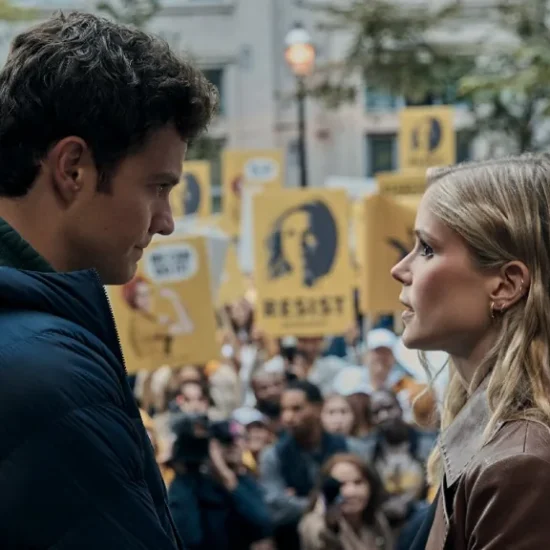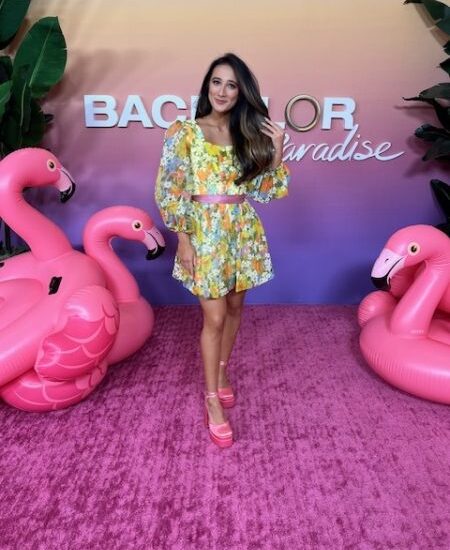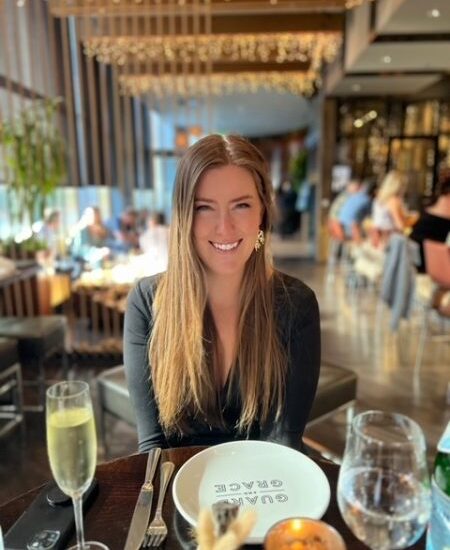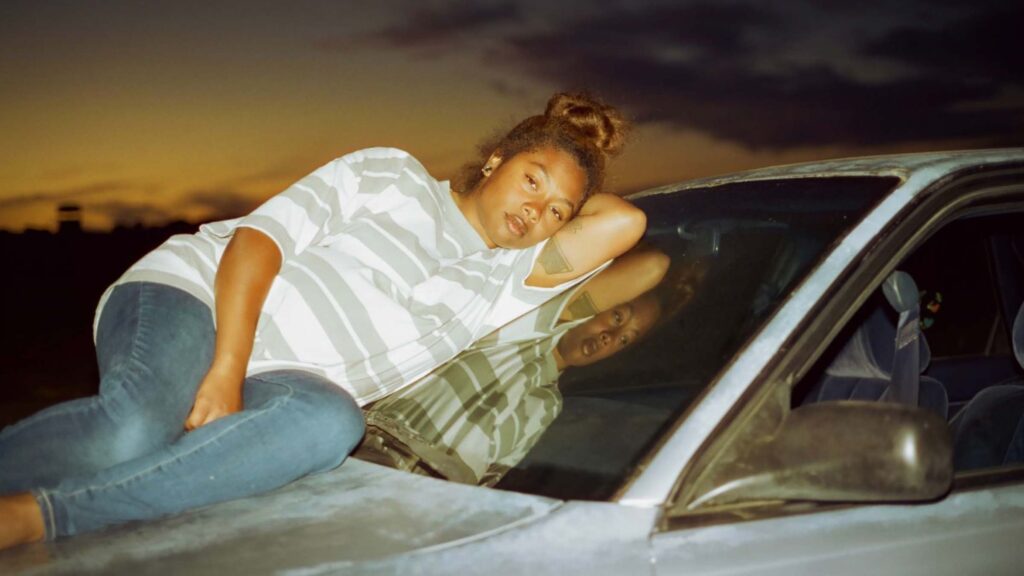
Filmmaker Savannah Leaf’s journey toward making Earth Mama, her feature debut, was not a linear one. The seeds of the new A24 release—about a young single mother in circa-2000s Oakland, dealing with a late-term pregnancy while simultaneously trying to extract her two older children from foster care—reach back to Leaf’s own experience gaining an adopted sister when she was 16, the same age as her new baby sister’s birth mother. Fascinated by this mirror version of herself, the idea nevertheless percolated for years while Leaf pursued a career as an Olympic volleyball player, representing Great Britain in 2012 in London.
From there came the documentary short The Heart Still Hums, which likewise provides an experiential glimpse into the lives of women caught up—in various ways—in the foster care and open adoption systems. But the goal was always a narrative feature. So now comes Earth Mama, opening this weekend in art house theaters nationwide, starring rapper-turned-actor Tia Nomore in the breakout role of Gia, a capable young woman stuck in a fraught situation.
We recently spoke to Leaf about developing her idea through several stages of writing and research, her visual approach to the film, working with first-time actors, social impact and more. To see more of the best indie film releases, check out our July Don’t-Miss Indies.
SAVANNAH LEAF
So as part of my research I went back and watched The Heart Still Hums, the nonfiction short you made about the same subject. How’d you make the leap from the documentary project to Earth Mama?
Leaf: I actually wrote a draft of the feature script first. It was basically about me meeting my sister’s birth mother and putting myself in her shoes, envisioning myself as her because we were so similar in age. There was something exciting about imagining her and her life and meeting her really changed my life from then on. You know, [her daughter] was my first sibling. I was 16 years older than [my sister] so I was kind of like her second mom. So that was the first version of the script. I decided to make the short documentary as kind of like emotional research, meeting a lot of different women who were going through a similar situation. So the next phase of the script was taking onboard a lot of the emotions of all of these women, as well as doing some further bureaucratic research into the foster care system.
Did you ever consider just making a feature-length doc?
Leaf: I knew that I didn’t want to follow these women around every day and maybe reveal things that could affect their court cases. I just kind of wanted to retrieve some of that emotional resonance. In a feature-length documentary you would have to follow people around a bit more, and that felt kind of ethically wrong. To me, a fictionalized story meant I could take all of these other stories onboard and not feel worried about whether or not somebody’s going to get their child back after this.
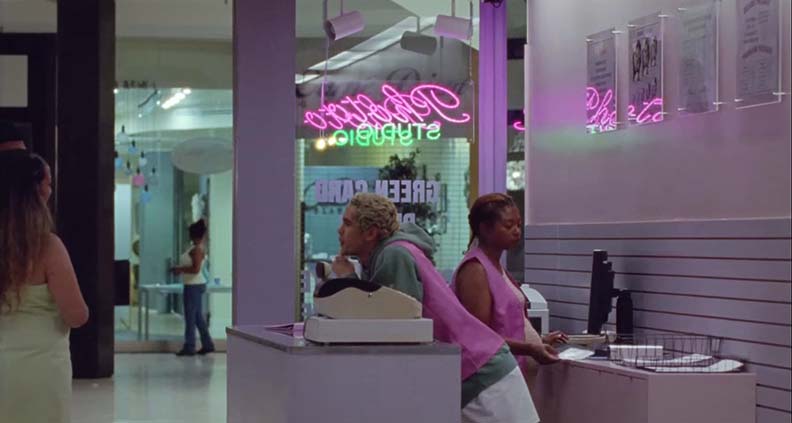
Could you talk a little bit about your visual approach to the film?
Leaf: Something that was really important to me was to not force any sort of emotion through our camera language. Which meant just stepping away a little bit and not having the camera right up in our actors’ faces. I tried to create a camera language that enabled first-time actors to do a performance once and not repeat themselves for another camera angle, giving them some space to move around in a natural way. The other side of it was that I didn’t want to force a heavy tone on something we already know is so heavy.
I really love the color palette of the film, with all those soft pastels.
Leaf: Yeah, definitely. It’s kind of a nostalgic feel, for me, of the mid-2000s in the Bay—almost dreamlike and hazy and not completely reality.
It gives it that texture, where it feels like a physical object when you look at it.
Leaf: Exactly.
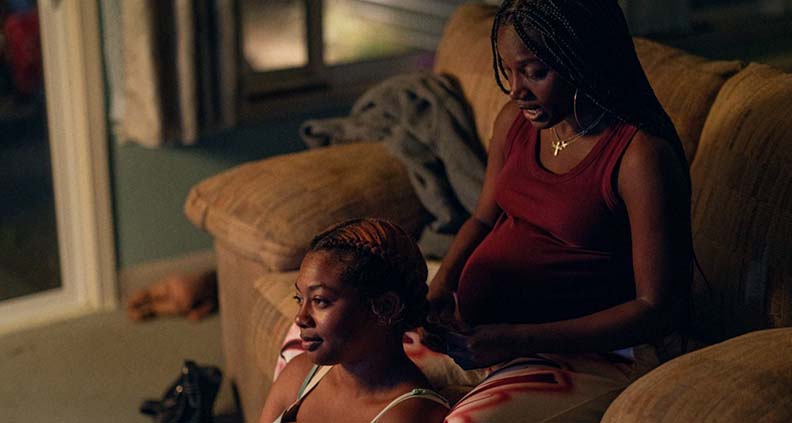
Tia Nomore wasn’t an artist I was familiar with beforehand, but she’s in practically every frame of this film. What was it like working with her and how did you get her involved?
Leaf: We looked everywhere, at everyone. Experienced actors, less experienced actors, people who had never acted before at all. I wanted someone who already had a relationship to motherhood—mostly for the physicality of being pregnant. I feel like I see a lot of movies where someone is pregnant, but the belly looks fake and they’re carrying themselves in a way that doesn’t feel authentic. Tia had just had a baby a year or two earlier, so she was still dealing with postpartum and breastfeeding. And she carried that with her in her whole performance.
Were you trepidations about casting so many people for whom this was their first film?
Leaf: I was kind of terrified, because [Gia] is such a big role and I’m asking so much. Tia was going to have to be in hours of prosthetic makeup in the morning every day before she started shooting. It was nice knowing she had experience as a musician and a performer, because she knows what it’s like to wake up and do a show and then do another show the next day. She’s also from the Bay Area, so even the way she speaks it’s great to have that sense of authenticity.
The film really does have a great sense of place without ever, like, showing the bridge or something. I think it was only like 10 or 15 minutes before I thought, “Oh okay, this is the East Bay.”
Leaf: Yeah, exactly. That’s great. I’m glad you felt that way.
You’re being released theatrically by A24. But for a film like this that touches on so many social issues is there any sort of impact campaign that’s running concurrent with the film’s distribution?
Leaf: We’ve been talking about various things. The most important thing for us right now is to get conversations happening. We’ve been talking to organizations throughout the US about seeing the movie, and in a lot of our special screenings prior to the film’s release we’ve been inviting a lot of nonprofits that are a hand’s reach away from the subject matter. We don’t have a specific organization we’re pointing people towards as the one to donate to—I feel that every community needs something that’s specifically curated for that community.
Lastly, do you have another project in the works?
Leaf: Something that’s really exciting that’s out now is a short film I made called “Run” that’s at the Hauser & Wirth Gallery in downtown LA. It’s about a retired athlete—really, me being a retired athlete—and it’s going to be playing for about a month-and-a-half alongside some other great Black female artists.
Film Independent promotes unique independent voices, providing a wide variety of resources to help filmmakers create and advance new work. Learn more online and become a Member of Film Independent today.
Keep up with Film Independent…









